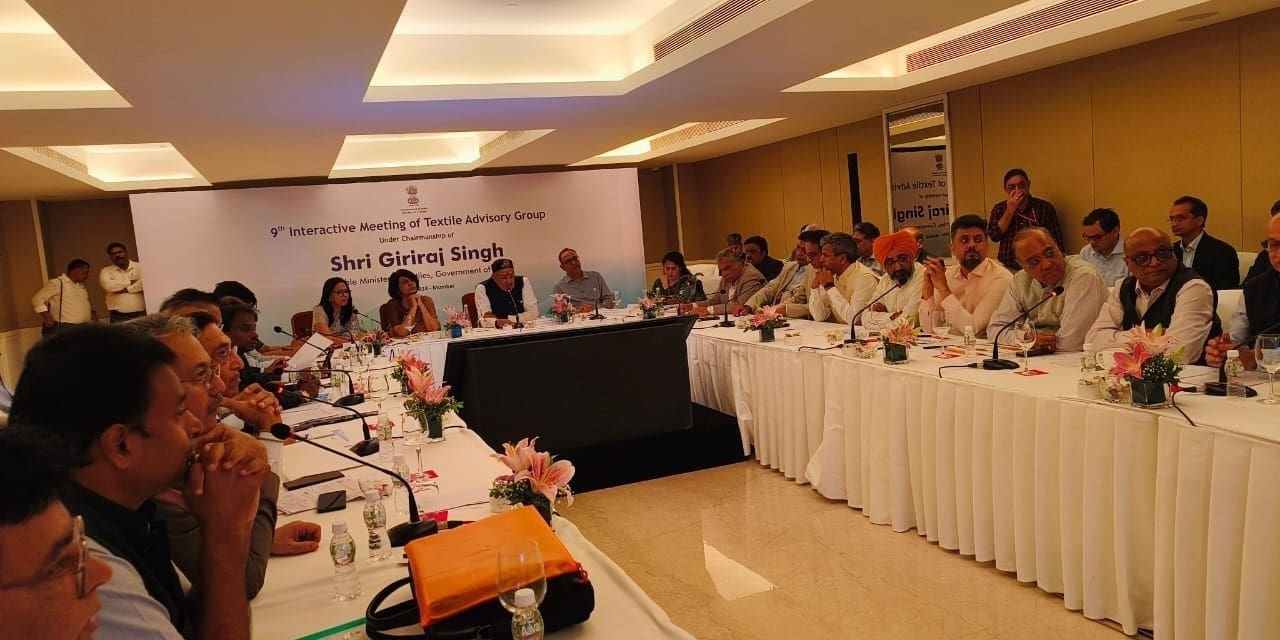— Under the chairmanship of the union textile minister Shri Giriraj Singh, a meeting of the Textile Advisory Group was held in Mumbai on 12 July 2024
— The industry association proposed to restart the A-TUF scheme and implement it from January 1, 2023, with the allocation of fund of Rs 5,000 crore
Surat:
On July 12, 2024, the Textile Advisory Group MMF met in Mumbai, with Union Textile Minister Shri Giriraj Singh serving as the meeting’s chairperson. A proposal has been made by the Southern Gujarat Chamber of Commerce and Industry (SGCCI) to waive the QCO and anti-dumping duty on viscose filament yarn. Additionally, it has urged that the A-TUF scheme be relaunched and implemented starting on January 1, 2023, with a funding allocation of Rs 5000 crore.
SGCCI Past President Mr. Ashish Gujarati and Vice President Mr. Nikhil Madrasi told the textile minister that the weaving sector in Surat has received investments of Rs. 40000 crores to far. There were only 10,000 high-speed weaving machines in the city when the TUF initiative was introduced in 2000; today, the number of high-speed weaving machines in use is estimated to be 1.25 lakh. The CAGR for the weaving industry has been 12.50%. In the next seven years, the weaving industry may receive an additional investment of Rs 40,000 crore if current expansion continues.
Surat’s textile sector employs 18 lakh people and produces 5 crore meters of fabric every day. Numerous fabrics that were once imported have been replaced by domestic textiles, baggage fabric, umbrella fabric, and high-speed taffeta produced by the weaving industry. With almost 6000 waterjet machines in place, Surat is the world’s biggest metropolis for producing twisted fabric made from viscose filament yarn.
The yearly production of viscose filament yarn in domestic businesses amounts to just 50%, or 50,000 metric tons, of the 1 lakh metric tons that are required. The trade association has suggested against levying a QCO and anti-dumping tariff on viscose filament yarn. They added that before to QCO’s arrival, the industry only received yarn that was 10% more expensive than that of the other manufacturing nations, but it is now between 25% and 35% more expensive.
The Ministry of Chemicals and Fertilizers should be reassigned responsibility for the polyester and MMF yarns to the Ministry of Textiles. Mr. Bharatbhai Gandhi, the Chairman of FIASWI, gave presentations on ATUF, TUF, M-TUF, R-TUF, and RR-TUF. He insisted on moving the pending payment along quickly.

